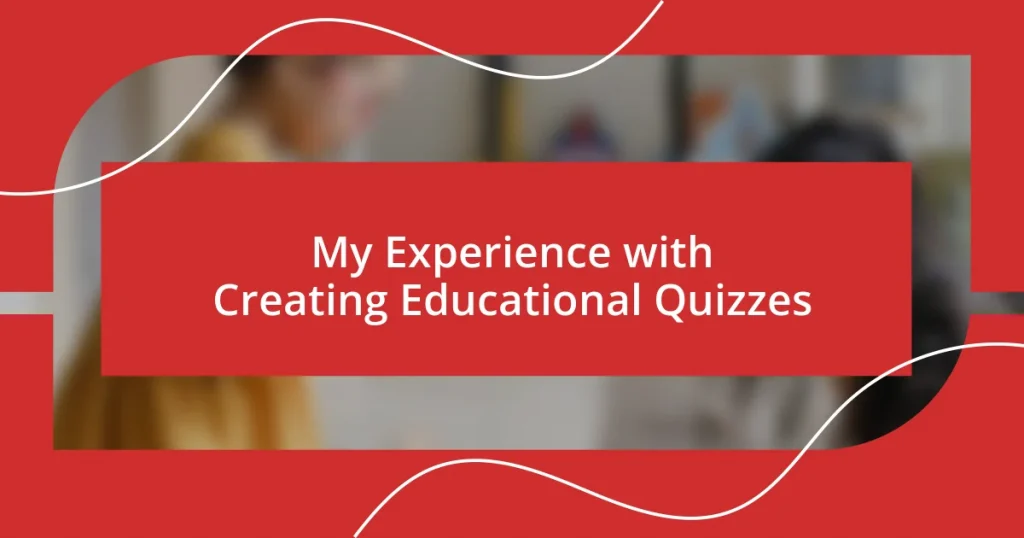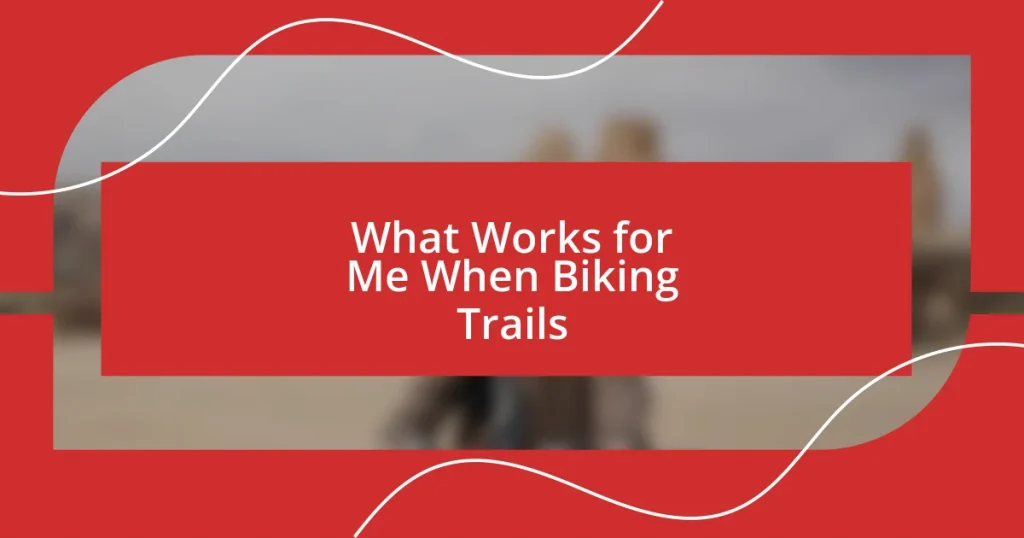Key takeaways:
- Quizzes enhance engagement and motivation by transforming assessments into interactive learning experiences, encouraging critical thinking and creating dialogue between educators and students.
- Utilizing various quiz-making tools like Google Forms and Kahoot! can foster excitement and collaboration, making learning enjoyable and effective.
- Analyzing quiz results helps educators identify knowledge gaps and adjust teaching strategies, while involving students in the analysis promotes reflection and ownership of their learning process.
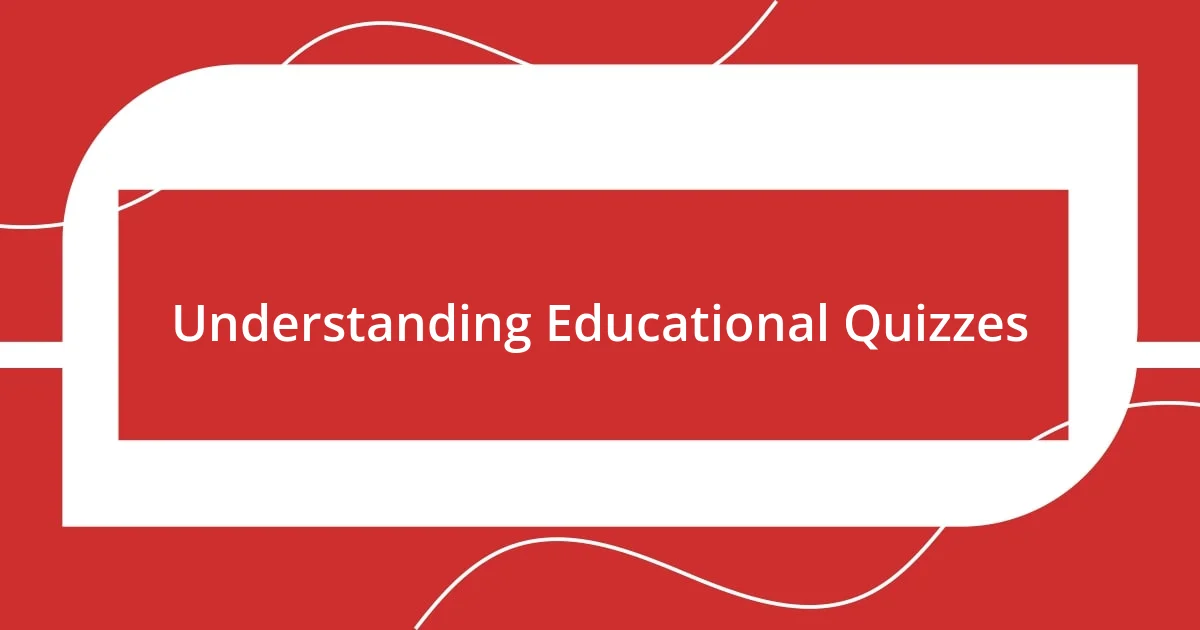
Understanding Educational Quizzes
Creating educational quizzes is more than just a means of assessment; it’s an opportunity to engage learners and reinforce knowledge. I still remember the first quiz I created for my students. It was a whirlwind of excitement and anxiety, knowing that those questions I carefully crafted would influence their learning experience. How can we capture the essence of a topic in just a few questions?
I believe that the best quizzes are those that challenge the mind while also encouraging critical thinking. When I crafted questions that pushed my students to apply concepts rather than just recall facts, I noticed their enthusiasm surged. Isn’t it fascinating how a well-structured quiz can transform a mundane review session into an interactive learning adventure?
Moreover, understanding educational quizzes involves recognizing their role in feedback. After administering a quiz, the reflective conversations with my students were priceless. I found that analyzing what went well and what didn’t helped us both grow. How do you utilize quizzes to foster dialogue with your learners? For me, it’s a dialogue that extends beyond the classroom, shaping the way I approach education.
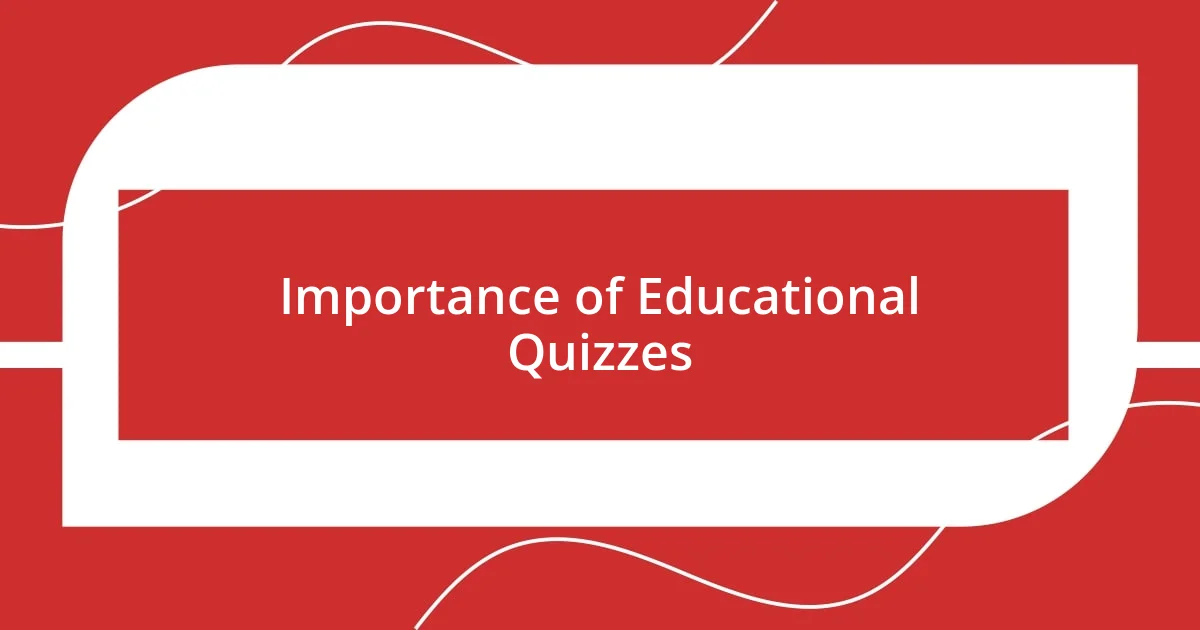
Importance of Educational Quizzes
Quizzes are invaluable in the educational process, as they provide a snapshot of student understanding. I distinctly remember when I introduced a quiz on a complex topic; the results revealed unexpected gaps in knowledge. This moment of discovery not only guided my teaching strategy but also opened up meaningful discussions with my students about what they found challenging.
In my experience, the importance of educational quizzes extends beyond simple assessment. They serve as a motivational tool, too. I’ve seen students who were once disengaged suddenly light up when presented with a quiz that was both fun and challenging. I believe it’s those moments when we spark curiosity that truly enhance the learning experience.
Moreover, quizzes facilitate immediate feedback, which is crucial in the learning journey. In one instance, after a quiz, I was able to adjust my lesson plans on the fly based on students’ responses. It felt empowering, not only for me but for my students as well, as we collectively navigated the learning process side-by-side.
| Aspect | Importance |
|---|---|
| Assessment | Identifies gaps in student understanding |
| Motivation | Encourages student engagement and excitement |
| Feedback | Provides immediate insights for both students and educators |
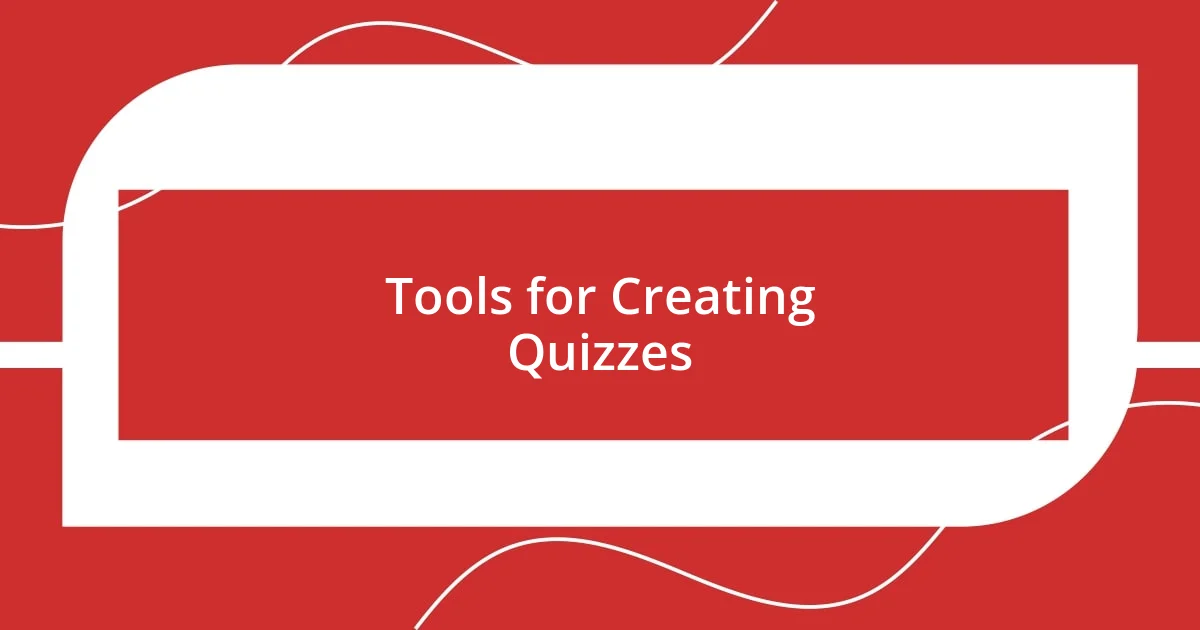
Tools for Creating Quizzes
I’ve had the privilege of utilizing various tools to create engaging quizzes, each offering unique features that enhance the quiz-making process. Platforms like Google Forms and Kahoot! have been particularly useful for me. I vividly recall using Kahoot! during a review session; the excitement in the room was palpable as students eagerly competed against each other in a game-like environment, which not only made learning fun but also boosted their retention of the material.
Here are some tools I’ve found beneficial for creating quizzes:
- Google Forms: Easy to use, allows for a variety of question types, and integrates seamlessly with Google Sheets for data analysis.
- Kahoot!: Perfect for interactive quizzes, it turns assessments into lively competitions that foster student engagement.
- Quizlet: A great platform for creating flashcards and quizzes, catering to different learning styles while promoting collaborative study.
- Typeform: I appreciate its sleek design and user-friendly interface, which makes creating visually appealing quizzes a breeze.
Exploring these tools has been like discovering new facets of my teaching style. Each platform brings a fresh perspective, making quizzes not just a task but an enjoyable experience for both me and my students. I can genuinely say it feels rewarding to see my students interact with the material in dynamic ways.
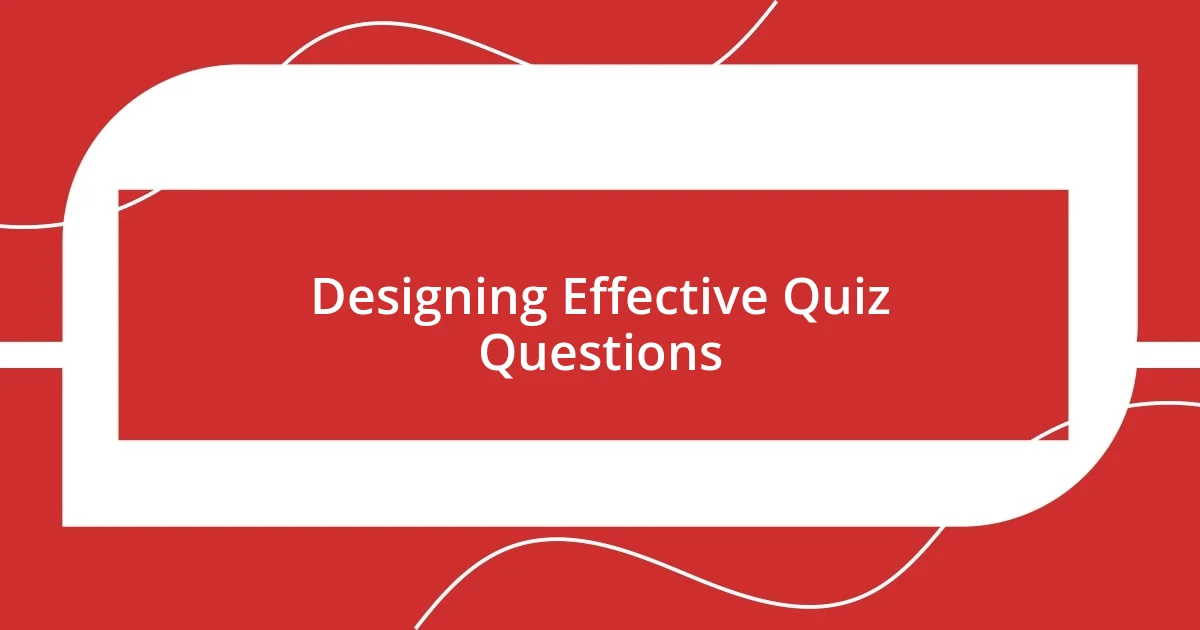
Designing Effective Quiz Questions
When designing effective quiz questions, clarity is paramount. I remember crafting a question that was a bit too ambiguous; it left my students confused rather than challenged. This taught me the value of precise wording—something I apply religiously now. If I can communicate what I’m asking in clear, straightforward terms, I find my students are much more focused on demonstrating what they know rather than deciphering the question itself.
Another aspect I consider is the balance between question difficulty. I often mix in easy, medium, and hard questions to keep my students engaged without overwhelming them. For instance, I once began a quiz with a simple question about basic definitions, which built their confidence immediately. That confidence then carried through to the more challenging questions later. Don’t you think that by starting with accessible questions, I basically set the stage for success?
Lastly, incorporating different question types can greatly enhance the quiz experience. I’ve found that using a mix of multiple-choice, true/false, and open-ended questions encourages deeper thinking. One time, I included a scenario-based question where students had to apply their knowledge to a real-world situation. The discussions that followed were incredible! It’s moments like these that remind me how diverse question formats can lead to richer learning experiences. Wouldn’t you agree that variety not only keeps things interesting for students, but also allows them to demonstrate their understanding in unique ways?
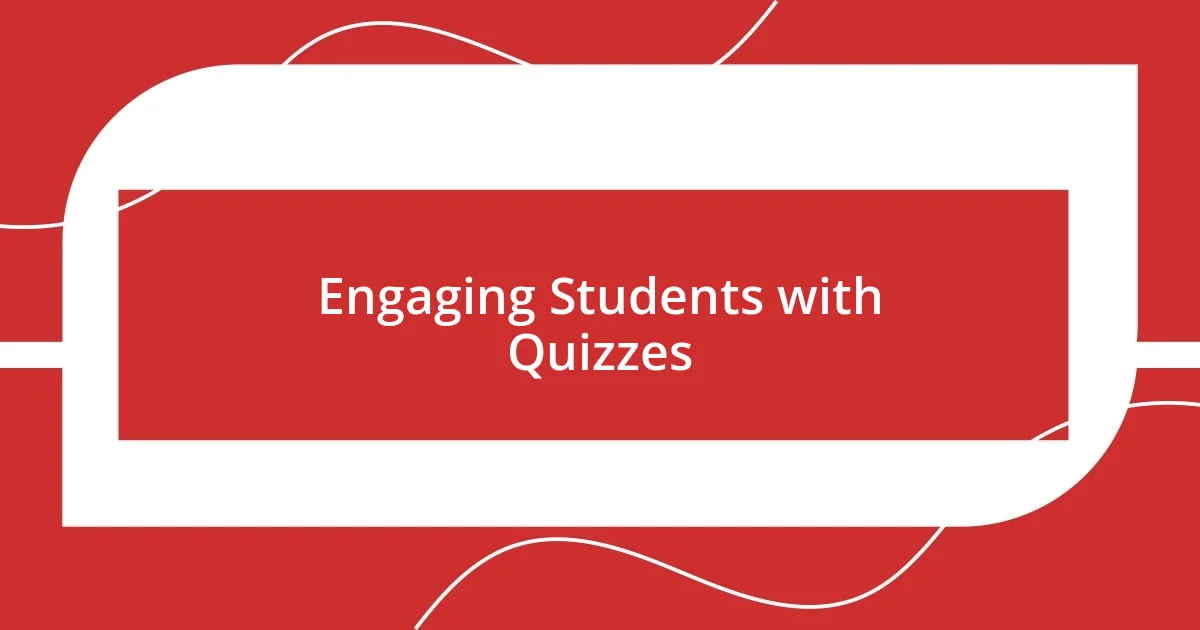
Engaging Students with Quizzes
Engaging students with quizzes goes beyond just testing their knowledge; it’s about creating an experience that resonates with them. I’ll never forget the day when I introduced a quiz that directly tied to a recent group project. The energy in the classroom was electric as students recalled their collaborative efforts. They weren’t just answering questions—they were sharing stories and connections to their learning. Isn’t it incredible how a quiz can serve as a bridge between different parts of their educational journey?
Utilizing competitive elements can truly amplify student engagement. I once hosted a quiz competition where students formed teams and raced against the clock. The camaraderie and friendly rivalry encouraged students to dive into the material more deeply than I had anticipated. Witnessing their enthusiasm not only motivated them to study harder but also reinforced their understanding of the subject. It made me realize how powerful that sense of community can be in the learning process—don’t you think we should cultivate that experience more in our classrooms?
Interactive features, like instant feedback during quizzes, have made a remarkable impact on my teaching. I recall implementing a real-time scoring system in Kahoot! Students were jumping out of their seats, cheering for each other—or groaning in mock-despair over missed answers. This immediate feedback loop not only sparked lively discussions but also helped them quickly grasp their understanding of the material. Seeing their faces light up when they got a question right was absolutely rewarding. Isn’t it amazing how a little suspense can elevate learning to a whole new level?
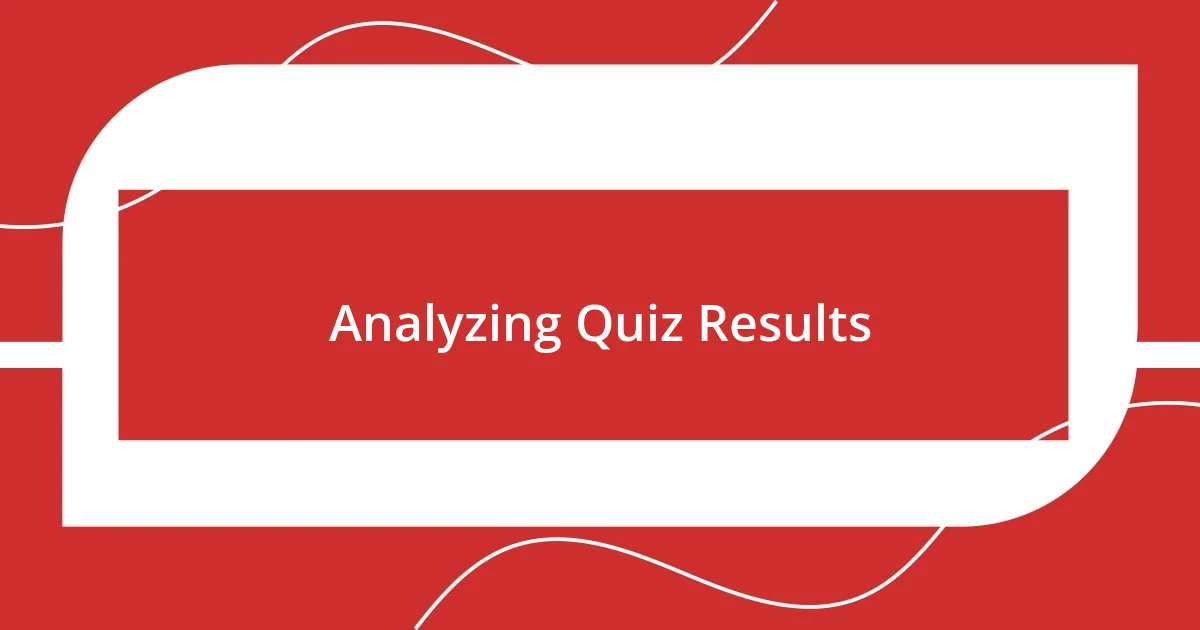
Analyzing Quiz Results
Analyzing quiz results is where the real learning begins. I remember one time I reviewed the results of a math quiz that featured a surprising number of incorrect answers on a particular question. Instead of jumping to conclusions, I took a step back and asked myself why so many students struggled. It turned out that the concept hadn’t been thoroughly covered in class, and that realization prompted me to adjust my future teaching plans. Isn’t it enlightening how a simple analysis can inform and enhance instruction?
Another important aspect is understanding patterns in student performance. I’ve often found that certain topics consistently yield lower scores, which signals to me that I need to revisit those areas. For instance, I analyzed the quiz results from a history class last semester where students excelled in dates but faltered in essay questions. This prompted me to incorporate more writing practice in the curriculum. That shift not only improved their scores but also their overall confidence. What are some trends in your quiz results that you’ve noticed over time?
Lastly, I engage my students in the results analysis process too. When I presented quiz data from their latest tests, the room was abuzz with discussions about where they felt challenged. One former student admitted he had been intimidated by long answer questions and realized he needed to tackle that fear. This conversation not only fostered a growth mindset among the students but also empowered them to take ownership of their learning journey. Isn’t it rewarding to see them reflecting and strategizing together?









